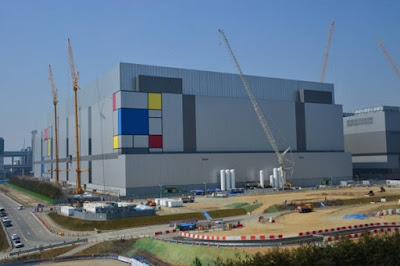ESPOO, Finland, 16th January, 2018 – Picosun Oy, a leading supplier of Atomic Layer Deposition (ALD) thin film coating technology for global industries, partners with STMicroelectronics S.r.l. to develop the next generation 300 mm production solutions for advanced power electronics.
Power electronic components are right at the heart of many core elements of our society, where energy saving, sparing use of natural resources, and CO2 emission reductions are called for to provide for sustainable future. Energy production with renewables such as wind and solar, clean transportation with electric vehicles and trains, and industrial manufacturing with energy-smart power management and factory automation are key markets where the demand for advanced power components is increasing.
Power electronic components are right at the heart of many core elements of our society, where energy saving, sparing use of natural resources, and CO2 emission reductions are called for to provide for sustainable future. Energy production with renewables such as wind and solar, clean transportation with electric vehicles and trains, and industrial manufacturing with energy-smart power management and factory automation are key markets where the demand for advanced power components is increasing.
Most power semiconductor industries use 200 mm wafers as substrates. Transfer to 300 mm enables more efficient, ecological, and economical production through larger throughputs with relatively smaller material losses, and adaptation of novel manufacturing processes such as ALD allows smaller chip sizes with increased level of integration.
As a part of the funded project R3-POWERUP (*), Picosun’s PICOPLATFORM™ 300 ALD cluster tool will be optimized and validated for 300 mm production of power electronic components. The SEMI S2 certified PICOPLATFORM™ 300 cluster tool consists of two PICOSUN™ P-300S ALD reactors, one dedicated for high-k dielectric oxides and one for nitrides, connected together and operated under constant vacuum with a central vacuum robot substrate handling unit. The ALD reactors are equipped with Picosun’s proprietary Picoflow™ feature which enables conformal ALD depositions in high aspect ratios up to 1:2500 and even beyond. Substrate loading is realized with an EFEM with FOUP ports. The fully automated cluster tool can be integrated into the production line and connected to factory host via SECS/GEM interface.
“Our PICOPLATFORM™ 300 cluster tools have already proven their strength in conventional IC applications, so expansion to the power semiconductors is only natural. We are very pleased to work with a company such as STMicroelectronics to tailor and validate our 300 mm ALD production solutions to this rapidly growing market. This is also a prime opportunity both to contribute to the future of European semiconductor industries, and to utilize ALD to provide technological solutions to the global ecological and societal challenges such as climate change and dwindling natural resources,” summarizes Juhana Kostamo, Managing Director of Picosun.



%20(1).png)









